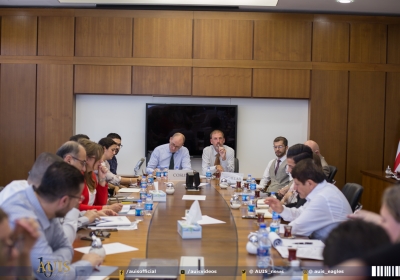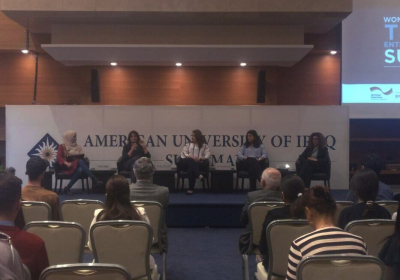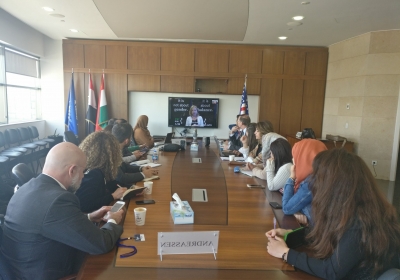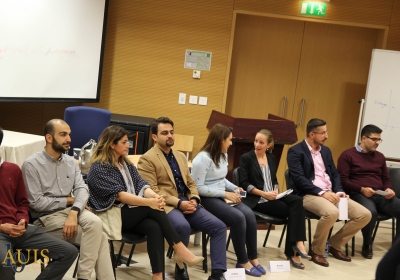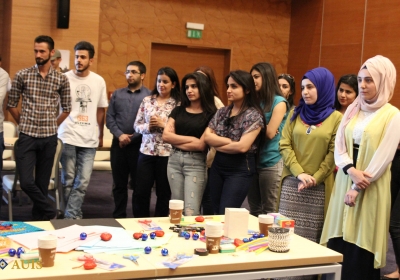Women’s Entrepreneurship Week: A Conversation with Ava Nadir, Ravan Jaafar, and Yara Salem
On Wednesday, October 17, 2018, the AUIS Entrepreneurship Initiative participated in Women’s Entrepreneurship Week in coordination with Montclair State University’s Feliciano Center for Entrepreneurship. AEI hosted Ravan Jaafar, the founder of the Book Cafe Erbil, Ava Nadir, head of Marketing for Zain Kurdistan, and Yara Salem, World Bank Special Representative to Iraq, for a discussion on the female entrepreneurs’ personal challenges and experiences starting their own businesses in the Middle East. Ahmed Tabaqchali, senior AEI advisor, moderated the discussion.
All three women echoed the opinions of many woman entrepreneurs who face cultural and religious constraints in addition to the usual challenges surrounding business registration and access to capital in the Middle East. Yara Salem, for example, relayed her experience starting the first life insurance company in Palestine, a project previously deemed unacceptable by religious standards. She was fortunate enough, however, to acquire a bank loan in addition to financial support from her family and friends. Ravan, on the other hand, struggled with financing in the early stages of her business. Given the extremely limited access to capital that entrepreneurs face in Iraq and the KRI, she and her partners had to rely almost entirely on their own salaries to start The Book Cafe. In one particularly difficult attempt to receive funding from a women’s empowerment organization, she was told the only support she could receive was a sewing machine or money for a sewing machine.
The discussion also focused on the challenges of working as an entrepreneur within a creative industry in particular. Ava Nadir, who started the communications and media agency Mediawan, noted that creative businesses can be especially difficult to start up given the high capital and inventory requirements. Ravan likewise faced difficulties convincing potential investors that the concept of a book cafe could succeed, given the oft-repeated opinion that no one in Erbil would be interested in reading at a cafe. All three women ultimately acknowledged the significant challenges to starting a business--both as as women and entrepreneurs operating within the financial and bureaucratic constraints of the Middle East. However, a willingness to accept risk and persevere despite cultural and religious stigmas, detrimental registration and legal procedures, and limited access to capital provides the foundation for women to successfully start and grow their businesses.


